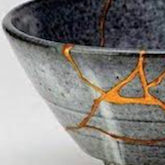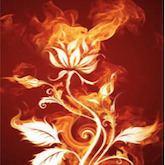Essays
How "The Blue Cliff Record" Came to Be
Tricycle: The Buddhist Review (Fall 2025)
"The koan collection known in English as The Blue Cliff Record emerged in China almost a thousand years ago. It was born of a generous vision: awakening as part of the shared work of the world, encouraged by many voices. As with the biographies central to Chan literature, the story of the Blue Cliff is part of its legacy, its philosophy embodied in human lives and tempered by negotiations with the unexpected movements of fate."
"The koan collection known in English as The Blue Cliff Record emerged in China almost a thousand years ago. It was born of a generous vision: awakening as part of the shared work of the world, encouraged by many voices. As with the biographies central to Chan literature, the story of the Blue Cliff is part of its legacy, its philosophy embodied in human lives and tempered by negotiations with the unexpected movements of fate."

Dreaming Earth
An ongoing series imagining from a perspective both wide and piercing some of the deep stories underneath the climate crisis and the future of humans. (includes audio recordings, Little Birds Patreon, 2019)
| Three Roads | ||
| Dreaming the Invisible | ||
| Invisible Ceremonies |

Love in the Time of Asuras
An erratic series prompted by the erratic events of our times, in hopes of offering ways to hold their complexities, grieving what there is to grieve and remembering the veins of gold that mend a broken tea bowl — the radiance in the shattered, the unexpected beauty of the mended. (includes audio recordings, June - October 2018)
| Our Ancestors, Our Children | ||
| Doubts and Loves | ||
| Make it a Prayer | ||
| Three Roads | ||
| Noncomplicity |

The Myth We're In
Three essays written in 2018 that look at the current political landscape from the perspective of myth.
| Part I - Breaking the Spell | ||
| Part II - Initiation | ||
| Part III - Exile, Home |

Responses to the 2016 Presidential Election
Seven responses to the 2016 US presidential elections written as letters.
| First Response : Calling Your Soul Home | ||
| Second Response : The Revenge of Kindness | ||
| Third Response : Balancing the Monsters of Love | ||
| Fourth Response : Ghosts & Ancestors | ||
| Fifth Response : Please Try Not to Cope | ||
| Sixth Response : Koans for Interesting Times | ||
| Seventh Response : We Are All Ancestors Now |
Koans for Troubled Times
Republished in Lion's Roar, (April 6, 2018) Originally published in Buddhadharma
"Twelve hundred years ago, a few Chan innovators had a fierce desire to leap out of the usual ways of doing things and into new territory – not to escape the catastrophe looming around them, but to more fully meet it. If they were going to be helpful they had to develop, and quickly, flexibility of mind, an easy relationship with the unknown, and a robust willingness to engage with life as they found it. Perhaps most importantly, they needed a really big view."
"Twelve hundred years ago, a few Chan innovators had a fierce desire to leap out of the usual ways of doing things and into new territory – not to escape the catastrophe looming around them, but to more fully meet it. If they were going to be helpful they had to develop, and quickly, flexibility of mind, an easy relationship with the unknown, and a robust willingness to engage with life as they found it. Perhaps most importantly, they needed a really big view."
What is Enlightenment?
Republished in Buddhadharma, (Fall 2017)
"Here the story is passd on with the flame : Enlightenment is our true nature and is our home, but the complexities of human nature cause us to forget. That forgetting feels like exile, and we make elaborate structures of habit, conviction, and strategy to defend against its desolation..."
"Here the story is passd on with the flame : Enlightenment is our true nature and is our home, but the complexities of human nature cause us to forget. That forgetting feels like exile, and we make elaborate structures of habit, conviction, and strategy to defend against its desolation..."
Through the Dharma Gate
Republished in Lion's Roar, (February 21, 2017)
The location of the gate – the forms of meditation – is fixed and known, but what will happen there can never be known ahead of time. Joan Sutherland on the place where form and formlessness meet.
The location of the gate – the forms of meditation – is fixed and known, but what will happen there can never be known ahead of time. Joan Sutherland on the place where form and formlessness meet.
This Floating World
Republished in Lion's Roar, (June 30, 2016)
One of our Western sutras is the children's round that goes:
One of our Western sutras is the children's round that goes:
- Row, row, row your boat,
- Gently down the stream.
- Merrily, merrily, merrily, merrily,
- Life is but a dream.
What is Enlightenment?
Published in Lion's Roar (December 19, 2015)
"Awakening is a marriage of wisdom and compasÂsion, and each has an aspect that is enlightening and one that is endarkening. The enlightening aspect of wisdom is a growing clarity of insight that puts doubts to rest and creates confidence. It's about what we come to understand. The endarkening aspect of wisdom is our profound acceptance of the great mystery at the heart of things, which we can never understand in our ordinary ways but can rest in and be nourished by. This is sometimes called not-knowing mind."
"Awakening is a marriage of wisdom and compasÂsion, and each has an aspect that is enlightening and one that is endarkening. The enlightening aspect of wisdom is a growing clarity of insight that puts doubts to rest and creates confidence. It's about what we come to understand. The endarkening aspect of wisdom is our profound acceptance of the great mystery at the heart of things, which we can never understand in our ordinary ways but can rest in and be nourished by. This is sometimes called not-knowing mind."
Koans : How We Work with Them, How They Work on Us
Published in Buddhadharma (Summer 2015)
"What's so astonishing and beautiful about koans is that they aren't intended to describe something to us or even teach us something but to invite us to take them into our lives so that we can experience the same state of consciousness as the characters in the story."
"What's so astonishing and beautiful about koans is that they aren't intended to describe something to us or even teach us something but to invite us to take them into our lives so that we can experience the same state of consciousness as the characters in the story."
Anger as a Sacred Practice
All the Rage : Buddhist Wisdom on Anger and Acceptance, edited by Andrea Miller and the Editors of the Shambhala Sun, 2014
The practice of anger is not a practice in response to anger, intended to manage or fix it, but a practice of anger itself, based on an understanding of anger as something sacred to be handled with care. Zen teacher Joan Sutherland teaches on practicing with anger using the tools of inquiry, discernment, and remorse.
The practice of anger is not a practice in response to anger, intended to manage or fix it, but a practice of anger itself, based on an understanding of anger as something sacred to be handled with care. Zen teacher Joan Sutherland teaches on practicing with anger using the tools of inquiry, discernment, and remorse.
Foreword by Joan Sutherland
Improvisation on the Edge : Notes From On and Off Stage by Ruth Zaporah, 2014.
"...Ruth's work is for anyone trying to understand the meditation of real life; it's direct and insightful and blissfully free of spiritual cliché. It's wise about how mental and feeling states work, how stories form, and what it's like when all that falls away. The wisdom is earned, and you believe it..."
"...Ruth's work is for anyone trying to understand the meditation of real life; it's direct and insightful and blissfully free of spiritual cliché. It's wise about how mental and feeling states work, how stories form, and what it's like when all that falls away. The wisdom is earned, and you believe it..."
Grounded Improvisation by Joan Sutherland
In the Face of Fear : Buddhist Wisdom for Challenging Times, edited by Barry Boyce and the Editors of the Shambhala Sun, 2014.
"Everything rises and falls, and yet in exactly the same moment things are eternal and aren't going anywhere at all. We need to see with a kind of binocular vision, one eye aware of how things are coming and going all the time, the other of how they've never moved – not as two separate ways of seeing, but as one seamless field of vision."
"Everything rises and falls, and yet in exactly the same moment things are eternal and aren't going anywhere at all. We need to see with a kind of binocular vision, one eye aware of how things are coming and going all the time, the other of how they've never moved – not as two separate ways of seeing, but as one seamless field of vision."
Is Buddhism a Religion? Kind of...
Published in the Shambhala Sun (November 2013)
"Being crazy in love with awakening and committed to it for every being in the universe is a pretty strong religious impulse. Yet the koans and other traditions in the Buddhist big tent undermine attempts to solidify religion around that impulse. We don't always succeed, but the fact that some keep trying is one of the powerful potentials of Buddhism: being deeply religious, without religion."
"Being crazy in love with awakening and committed to it for every being in the universe is a pretty strong religious impulse. Yet the koans and other traditions in the Buddhist big tent undermine attempts to solidify religion around that impulse. We don't always succeed, but the fact that some keep trying is one of the powerful potentials of Buddhism: being deeply religious, without religion."
Lingzhao's Helping
The Hidden Lamp: Stories from Twenty-Five Centuries of Awakened Women, edited by Florence Caplow and Susan Moon, 2013.
"This book contains one hundred koans and stories, each with a commentary by a contemporary woman teacher, including Joan Sutherland. Collecting these stories in a single volume is a wonderful thing, as is showing such a range of modern dharma voices. Most of the commentators engage with their texts in very personal ways, as stories rather than koans, which is one of the powerful ways to connect the generations. Lovely to fire up this hidden lamp!"
"This book contains one hundred koans and stories, each with a commentary by a contemporary woman teacher, including Joan Sutherland. Collecting these stories in a single volume is a wonderful thing, as is showing such a range of modern dharma voices. Most of the commentators engage with their texts in very personal ways, as stories rather than koans, which is one of the powerful ways to connect the generations. Lovely to fire up this hidden lamp!"
Is Buddhism a Religion? Kind of...
"Being crazy in love with awakening and committed to it for every being in the universe is a pretty strong religious impulse. Yet the koans and other traditions in the Buddhist big tent undermine attempts to solidify religion around that impulse. We don't always succeed, but the fact that some keep trying is one of the powerful potentials of Buddhism: being deeply religious, without religion."
What Is Enlightenment?
Published in Buddhadharma (Spring 2013)
"It's not transcendent of our ordinary way of being; it's more like we've been living in two dimensions, and now there are three. Strawberries still taste like strawberries and harsh words are still harsh, but now we're aware of how everything interpermeates everything else, and that even the most difficult things are lit from within by the same undivided light."
"It's not transcendent of our ordinary way of being; it's more like we've been living in two dimensions, and now there are three. Strawberries still taste like strawberries and harsh words are still harsh, but now we're aware of how everything interpermeates everything else, and that even the most difficult things are lit from within by the same undivided light."
Seasons of Awakening
Published in Shambhala Sun (May 2012)
"In our yearnings for enlightenment, we might hope that it's a state of unfluctuating perfection that solves the problem of the constant change that roils our lives. But if we see what we're doing as awakening, something that unfolds over a lifetime, we understand that each of us is somewhere in the middle of a long walk through varied terrain. Then our task becomes to stay alive to the changes in that terrain, to trust the path as it appears before us, rather than try to impose our map on it."
"In our yearnings for enlightenment, we might hope that it's a state of unfluctuating perfection that solves the problem of the constant change that roils our lives. But if we see what we're doing as awakening, something that unfolds over a lifetime, we understand that each of us is somewhere in the middle of a long walk through varied terrain. Then our task becomes to stay alive to the changes in that terrain, to trust the path as it appears before us, rather than try to impose our map on it."
She Who Hears the Cries of the World
Published in Shambhala Sun (March 2012)
"Prayer is less a matter of a petition to a specific figure than a request sent out through the net of interconnectedness. At the same time, there's a strong awareness of listening for and receiving the prayers of others. In this way each woman becomes Kanzeon, whose name means Perceive the Sounds of the World. The aim is to have Kanzeon's heart, the heart of compassion that accepts everything. You grow your heart bigger so that everything will fit–even the things you don't like or agree with."
"Prayer is less a matter of a petition to a specific figure than a request sent out through the net of interconnectedness. At the same time, there's a strong awareness of listening for and receiving the prayers of others. In this way each woman becomes Kanzeon, whose name means Perceive the Sounds of the World. The aim is to have Kanzeon's heart, the heart of compassion that accepts everything. You grow your heart bigger so that everything will fit–even the things you don't like or agree with."
Gaining Perspective
Published in Buddhadharma (Summer 2011)
"If reaction is a move into the partial, a privileging of how we think and feel above everything else, response emerges from the whole of oneself, grounded in the whole situation, with each element assuming its true size and shape. In responding we're not doing something about a situation, but participating in it."
"If reaction is a move into the partial, a privileging of how we think and feel above everything else, response emerges from the whole of oneself, grounded in the whole situation, with each element assuming its true size and shape. In responding we're not doing something about a situation, but participating in it."
Unromancing No
Published in The Book of Mu (Wisdom Publications, 2011)
"The romance of realizing a first koan like Zhaozhou's No is a powerful and beautiful one. It offers us the possibility of experiencing what we know must be true: There is a vast and wondrous dimension to life, whose revelation will put doubts to rest and support a deep and abiding happiness for ourselves and others. ... As compelling as this romance is, it misses something actually richer, stranger, and ultimately more beautiful than the search for happily ever after. Far from saving us from our own lives, No leads us right into the heart of life. "
"The romance of realizing a first koan like Zhaozhou's No is a powerful and beautiful one. It offers us the possibility of experiencing what we know must be true: There is a vast and wondrous dimension to life, whose revelation will put doubts to rest and support a deep and abiding happiness for ourselves and others. ... As compelling as this romance is, it misses something actually richer, stranger, and ultimately more beautiful than the search for happily ever after. Far from saving us from our own lives, No leads us right into the heart of life. "
Our Path Is Limitless and Vast
Published in Buddhadharma (Winter 2010)
"Consider how many sentences you could write containing the words 'dharma' and 'women.' When I put them together, the next word that wants to come into the sentence is 'potential.'"
"Consider how many sentences you could write containing the words 'dharma' and 'women.' When I put them together, the next word that wants to come into the sentence is 'potential.'"
Free From the Prison of Gender Roles
Published in Shambhala Sun (May 2009)
"For decades, Rita Gross has been a unique and provocative voice in religious studies and feminist theology. The title of one of her books, Buddhism After Patriarchy, was a bright jolt, the simple juxtaposition of those words obliging us to take a hard look at the relationship of one to the other."
"For decades, Rita Gross has been a unique and provocative voice in religious studies and feminist theology. The title of one of her books, Buddhism After Patriarchy, was a bright jolt, the simple juxtaposition of those words obliging us to take a hard look at the relationship of one to the other."
The Whole Way
Published in Shambhala Sun (March 2009)
"This is how I've come to think of awakening. It's everywhere – as sudden and complete as the crash of thunder on a summer afternoon, as promising as a distant smudge of cottonwoods, revealing the presence of water. There are times of drought, too, when the very idea of awakening seems to have dried up under an unrelenting sky. We might think of awakening as something that happens inside us, but, as with a landscape, we also happen inside of it."
"This is how I've come to think of awakening. It's everywhere – as sudden and complete as the crash of thunder on a summer afternoon, as promising as a distant smudge of cottonwoods, revealing the presence of water. There are times of drought, too, when the very idea of awakening seems to have dried up under an unrelenting sky. We might think of awakening as something that happens inside us, but, as with a landscape, we also happen inside of it."